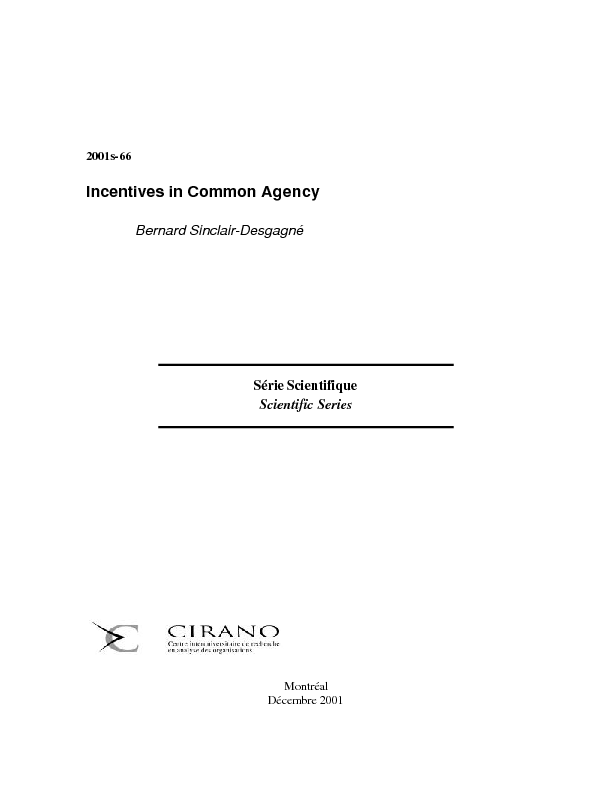Incentives in Common Agency
This paper considers situations where an agent must allocate his nonobservable effort among several tasks and where several principals hold diverging viewpoints on what the best allocation should be. Economic theory currently sees each of these features as major obstacles to raising the strength of an agent s incentives. This paper proposes a simple scheme - based on contingent monitoring - that can nevertheless mitigate both of these obstacles simultaneously. Under this scheme, if the agent s absolute risk aversion decreases fast enough with respect to wealth, then the principals would coordinate their respective incentive provision so that the agent would also see his various tasks as complementary (instead of substitute) income-enhancing activities. Furthermore, coordination could be achieved in a somewhat liberal or decentralized way, in the sense that some principals would need to control only the tasks they have assigned to the agent. Potential applications to corporate compliance, the organization of government, and the management of innovation are briefly discussed.
[ - ]




